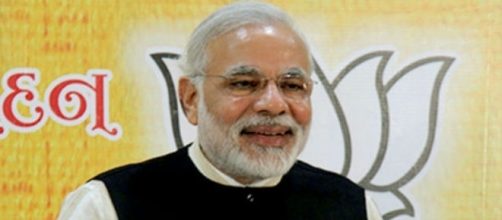The problem with populism is that it is very difficult to give it up midway. The same is being seen with Indian Prime Minister Narendra Modi. Fifty-three days after he had taken the gamble of scrapping 86 percent of his country’s cash, Modi addressed the nation but disappointed many among the audience. While people expected him to address the issues that have dealt a severe blow to the country's economy and the people, the prime minister was seen delivering a mini-budget, especially aimed at the rural people, women, and the elderly.
The PM did not utter anything on issues like black money, corruption or fake currency—those his abrupt policy of demonetization was expected to curb.
Nor did he say anything on the practical problems that the people face in terms of cash crunch or loss of jobs. According to experts, what Modi did was nothing more than a desperate act of controlling damage. He and his ruling party must have understood well by now that the impact of the gamble hasn’t happened the way they expected it to, and with a number of important state elections coming up in 2017, this could be a turning point for the Modi regime.
Narendra Modi has to go on playing the populist card
PM Modi has a big challenge to meet every day and that is about meeting the mountain of expectations. The man came to power in 2014 riding such a massive wave of promise and propaganda that anything less than what his fans and followers expect him to deliver every day during his stay in office could make him look like a failure.
Hence, the prime minister has to go on performing on the stage, even if the act is only perceived to be superlative but actually isn’t.
Modi's 'brave' moves against Pakistan & black money haven't paid off yet
Modi could understand it clearly that whatever promises he made prior to his election almost three years ago are not being achieved as easily as one would have thought. The twin issues of Pakistan-sponsored terrorism and bringing back the black money stashed abroad have been particularly unsettling, and hence, the Modi government chose to carry out two ‘surgical strikes’ (one against the external enemy and another against the internal). But these two acts have not fulfilled the expectation.
While cross-border terror acts have continued, there is still not much evidence that demonetization has produced the desired result of curbing black money and corruption. So, the prime minister has to now announce new populist ideas to hide the shortcomings of the hyped policy decisions so that the morale of his supporters doesn’t get low. And in doing so, Modi is getting more and more trapped in the vicious cycle of promising more to overcome the challenge of delivering less.
The second half of Modi’s tenure as the prime minister will be interesting to watch. For post-demonetization, his opponents who were looking hapless thus far have certainly succeeded in narrowing the gap. If key states voting this year do not want Modi and his BJP, then the 2019 Lok Sabha election could be a different ball-game for the leader who was looking invincible even a few months ago.

